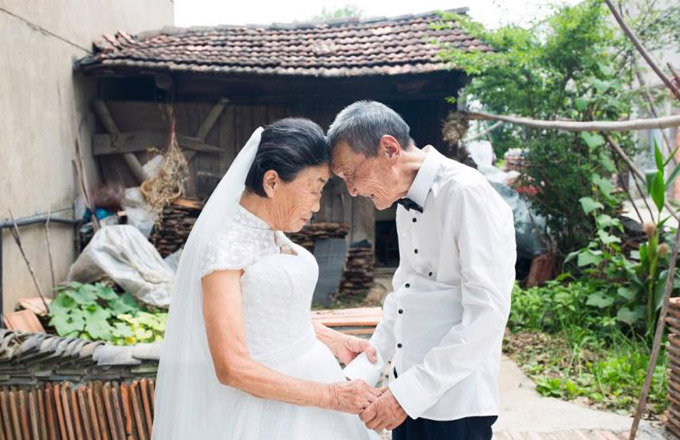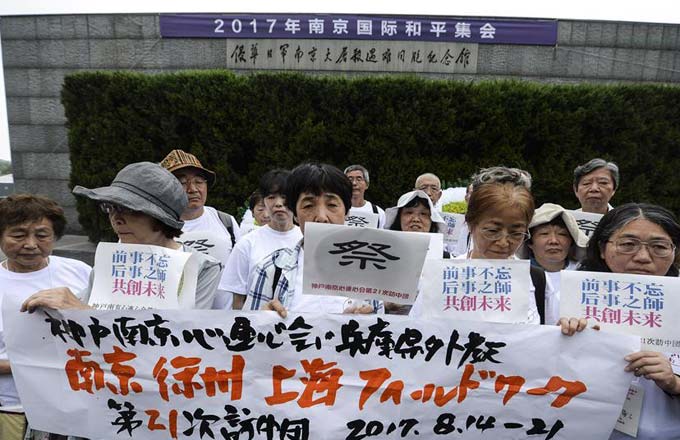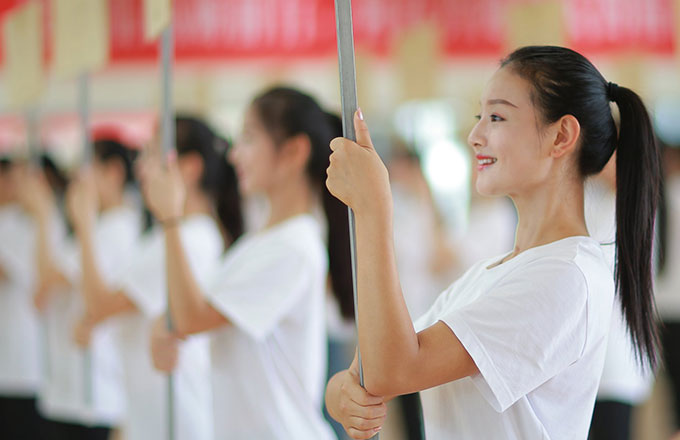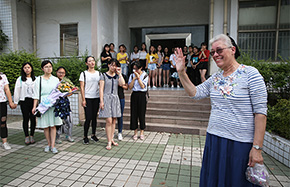Pei family maxim fosters ancestral pride
 |
|
Pei Jianmin introduces the history and maxim of the Pei family to primary students from Yuncheng, Shanxi province, at the Pei family ancestral temple in Peibai village. [Photo/China Daily] |
Peibai village looks no different from many other hamlets in North China. Rows of redbrick courtyards lie neatly in square formations, surrounded by plots of farmland resembling plaid.
For most of the year, the 200-home village in Wenxi, Shanxi province, is quiet, with left-behind children and their grandparents its main residents. Only during Spring Festival in late January or early February does it come to life when hundreds of young migrant workers return home from cities.
But records show that the humdrum rural community is the ancestral hometown to all people with Pei as their family name, about 870,000 worldwide.
Since the Qin Dynasty (221-206 BC), the Pei family has produced 59 prime ministers and 59 senior generals, with its peak in the Tang Dynasty (618-907), as well as nearly 500 writers, artists, scholars, scientists and officials, making the Pei clan a prestigious one among the more than 100 family name clans in China.
Pei Jianmin, 41, is one of a few young farmers who live in the village year-round. Apart from working on his farm, he also works as a tour guide in the temple, which was built in the early Tang Dynasty.
His grandfather was the Pei clan patriarch of the village, and Pei Jianmin has developed a keen interest in studying the history of the Pei family.
Many people attribute the success of the Pei people to the feng shui of the village, which is surrounded on three sides by nine hills. In Chinese culture, being surrounded by nine phoenixes is seen as auspicious.
But Pei Jianmin thinks that family tradition plays a bigger role, saying that feng shui is something impalpable. But the difference tradition can make in a family is significant.
The Pei family tradition is crystallized in the maxim for the Pei people, who are instructed to revere ancestors, respect parents, support relatives, maintain good relations with neighbors, be honest and modest, be hardworking and thrifty, set a good example for offspring, be knowledgeable and adept in professional skills, make good friends, behave properly and have strong social ethics.
The maxim, written in laconic, catchy and rhyming traditional Chinese, has been passed down from the Tang Dynasty, when Pei Du, a prime minister, returned to the village temporarily and invested heavily in education.
At a time when most of the rural population remained illiterate, the Pei villagers became an exception, thanks to their strict family and community education.
Yang Hulong, Party chief of the village, said the best building in the village had always been the school, which was known for its high standards.




























